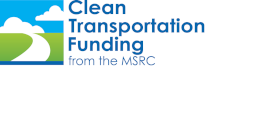
The MSRC and MSRC Technical Advisory Committee (TAC)’s joint 2021 Retreat was held on October 21 via Zoom. The Retreat highlighted projects funded through the 2018-21 Work Program and provided an opportunity for members to discuss partnerships with air agencies and how they could work together to best leverage MSRC funding to maximize emissions reductions and air quality benefits.
Ray Gorski, the MSRC’s Technical Advisor, provided a summary of the substantial outcomes from its most recent Work Program. The MSRC awarded more than $63 million in Clean Transportation Funding, primarily to projects designed to clean up the goods movement sector. This translated into nearly 550 near-zero and zero-emission trucks and vehicles. The annual tons of NOx and PM reduced from the MSRC-funded projects are approximately 93 tons, with lifetime reductions estimated at 648 tons. Ray noted that the biggest opportunity in the coming years will be funding and deploying heavy-duty zero-emission infrastructure.
A panel of representatives from the air and resources agencies presented on the current state of the air and future partnership opportunities with the MSRC. Aaron Katzenstein from the South Coast Air Quality Management District talked about the Air Quality Management Plan and the challenges the air basin is facing in attaining the federal ozone standards in 2023 and 2031. He also echoed the importance infrastructure will play, especially grid reliability, to supporting the zero-emission vehicles that are coming online.
Craig Segall from the California Air Resources Board stressed the need for engagement with frontline communities on air quality programs, and noted how they are seeing the push by local communities toward deploying zero-emission vehicles in all of their programs. He stressed that we need to ensure the transition to zero-emission technology and that any combustion is very low emission.
Tim Olson from the California Energy Commission reviewed the CEC’s 2020 solicitations and awards and noted that they have shifted their funding focus to investments in zero-emission infrastructure because of the Governor’s Executive Order. He highlighted the CEC’s Blueprint grants which fund projects to examine the priority needs for shifting away from diesel trucks, and identify the infrastructure needs for medium- and heavy-duty vehicles. He said the MSRC will be a candidate to implement the outcomes of the Blueprint grants.
The MSRC’s Outreach Coordinator presented on the existing clean transportation funding landscape, outreach activities it has conducted for the most recent Work Program projects, and innovative partnerships that the Committee could explore. These included partnerships with philanthropy, UC Riverside (where CARB’s Southern California headquarters opened in mid-November) and community-based organizations.
Finally, the MSRC approved giving the greenlight to the TAC to kick-off the next Work Program process. The MSRC voted to again have a three-year work program. The TAC will now begin its meticulous work to develop its recommendations for projects to fund for the MSRC’s 2021-24 Work Program.
